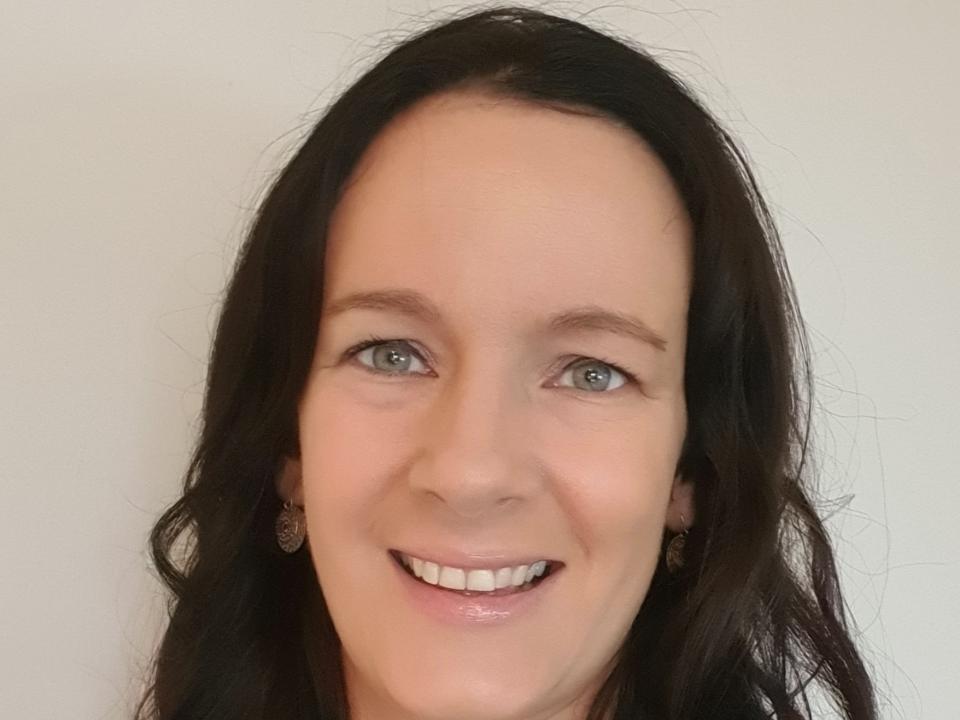
'“The ongoing enthusiasm and commitment of the Irish Cancer Society to invest in cancer research that can directly impact patients and families is undoubtedly leading to significant benefits, and I am honoured to be a small part of the tremendous work driven by the Irish Cancer Society,”- Dr. Cullinan
One of the most common questions that Dr Noelle Cullinan is asked as a paediatric oncologist, by parents and families is ‘Why – Why us, and why our family?’ Based at the National Children’s Cancer Service (NCCS), at Children’s Health Ireland (CHI) in Crumlin, Dr Cullinan was recently awarded funding through the Irish Cancer Society that has facilitated her appointment as a Consultant Paediatric Oncologist with a Special Interest in Cancer Genetics. The overarching goal of this appointment is the development of a dedicated cancer genetics programme for paediatric oncology patients, based at the NCCS.
"Prompt recognition and diagnosis of an underlying cancer predisposition syndrome is important"
“We now know that at least 10% of children with cancer have an underlying cancer predisposition syndrome, meaning that they have a genetic predisposition to developing cancer. This number is considerably higher in children with high-risk, relapsed or refractory cancers and affected patients require multidisciplinary care including input from haematology, oncology, and genetics health professionals,” says Dr Cullinan.
“Prompt recognition and diagnosis of an underlying cancer predisposition syndrome is important, with implications for diagnosis, treatment and disease surveillance for affected patients, and potential implications for family members, who may carry the same genetic variant.”
There are currently many significant advancements happening in this area. Dr Cullinan explains how the field of cancer genetics is rapidly expanding, with advanced sequencing technologies now increasingly available and accessible. Cancer predisposition syndromes are increasingly recognised, and where a patient is found to have a particular syndrome, there are now international guidelines in various stages of development for many of the commonly recognised syndromes. This is to ensure that appropriate disease surveillance strategies are in place to improve patient outcomes.
“Additionally, we are now able to interrogate particular cancer types, looking at genetic changes that drive the development of each cancer, with global precision oncology initiatives aimed at identifying molecular targets. These targets may allow clinicians and scientists to exploit these genetic changes with newer drugs, particularly in the setting of refractory or relapsed disease,” she says.
The research award will lay the foundations for the development of a dedicated national cancer genetics service for children with cancer and an underlying cancer predisposition syndrome, with close collaboration between haematology, oncology and genetics health professionals. Over the next two years, it is anticipated that a dedicated cancer genetics clinic with specific expertise will be established, to facilitate the diagnosis, treatment and surveillance of children with an underlying cancer predisposition syndrome, with opportunity for international collaboration, patient advocacy, education and research opportunities.
If you would like to share your story you can contact us at tellus@irishcancer.ie
Contact the Irish Cancer Society Support Line
If you have worries or concerns about cancer, you can speak confidentially to an Irish Cancer Society Cancer Nurse through the Freephone Support Line on 1800 200 700.
Monday to Friday, 9.00am - 5.00pm
For more information
Phone
1800200700
